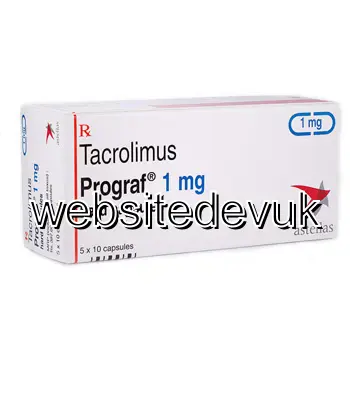| Package | Dosage | Price | Price per Dose | |
|---|---|---|---|---|
| Dosage: 0,5mg | ||||
| 90 pill | 0,5mg | £347.78 | £3.86 | |
| 60 pill | 0,5mg | £247.16 | £4.12 | |
| 30 pill | 0,5mg | £137.74 | £4.59 | |
| 20 pill | 0,5mg | £96.71 | £4.84 | |
| 10 pill | 0,5mg | £51.77 | £5.22 | |
| Dosage: 1mg | ||||
| 90 pill | 1mg | £488.46 | £5.43 | |
| 60 pill | 1mg | £349.73 | £5.83 | |
| 30 pill | 1mg | £206.12 | £6.86 | |
| 20 pill | 1mg | £153.37 | £7.66 | |
| 10 pill | 1mg | £85.96 | £8.64 | |
| Dosage: 5mg | ||||
| 20 pill | 5mg | £465.99 | £23.28 | |
| 10 pill | 5mg | £260.83 | £26.07 | |

Tacrolimus Description
Overview of Tacrolimus
Tacrolimus is a potent immunosuppressive medication primarily used to prevent organ rejection in transplant patients. It belongs to the class of calcineurin inhibitors, which work by suppressing the activity of the immune system. This suppression helps to reduce the risk of the body rejecting a transplanted organ, such as the liver, kidney, or heart. Tacrolimus is also used to treat certain autoimmune conditions, where the immune system mistakenly attacks the body's own tissues.
Mechanism of Action
Tacrolimus exerts its effects by binding to a specific immunophilin called FK-binding protein (FKBP). This complex then inhibits calcineurin, a key enzyme involved in activating T-cells—the white blood cells responsible for immune responses. By blocking calcineurin, tacrolimus effectively decreases the production of interleukin-2 and other cytokines that stimulate immune activity. This targeted action results in a significant reduction in immune response, which is crucial for preventing organ rejection.
Administration and Dosage
Usually, tacrolimus is administered orally in the form of capsules, but it can also be given intravenously in hospitalized patients. The dosage varies depending on the patient's weight, type of transplant, and other medical conditions. Doctors often start with a recommended initial dose and then adjust it based on blood levels of the drug, kidney function, and response to treatment. Consistent monitoring of blood levels is essential to maintain therapeutic effects while minimizing potential side effects.
Benefits of Tacrolimus
Patients who receive tacrolimus as part of their immunosuppressive regimen often experience improved transplant outcomes. It has shown high efficacy in reducing the incidence of rejection episodes compared to some other immunosuppressants. Additionally, tacrolimus may be associated with fewer side effects related to other medications, such as corticosteroids, making it a valuable option in transplant medicine. It helps prolong the lifespan of transplanted organs and enhances the patient's quality of life post-operation.
Possible Side Effects and Risks
While tacrolimus is effective, it can cause various side effects. Common adverse reactions include tremors, headaches, high blood pressure, and gastrointestinal discomfort. More serious, but less frequent side effects are kidney toxicity, increased susceptibility to infections, and neurotoxicity, which may involve symptoms like confusion or tremors. Long-term use can also raise the risk of developing diabetes, hair growth, or lipid abnormalities. Regular medical checkups and blood tests are necessary to detect and manage these potential issues early.
Precautions and Interactions
Patients taking tacrolimus should inform their healthcare provider about all other medications they are using. Certain drugs, such as antifungals, antibiotics, and some antihypertensives, can interact with tacrolimus, either increasing its levels and toxicity or reducing its effectiveness. It’s important to avoid grapefruit or grapefruit juice while on this medication, as they can interfere with its metabolism. Precautions should also be taken regarding live vaccines, as the immune system suppression can increase the risk of infections from vaccines.
Conclusion
Tacrolimus remains a cornerstone in transplant medicine due to its high efficacy in preventing organ rejection. Its precise mechanism of immune suppression contributes to improved graft survival rates. However, its use requires careful monitoring for side effects and interactions. With proper medical supervision, patients can achieve optimal outcomes and enjoy better post-transplant quality of life. Educating oneself about the medication’s benefits and risks helps in managing treatment effectively and safely.
